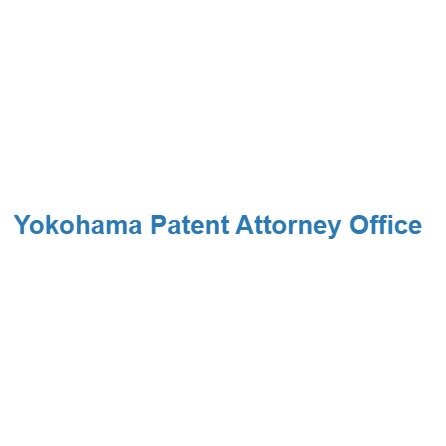Best Patent Lawyers in Kanagawa
Share your needs with us, get contacted by law firms.
Free. Takes 2 min.
List of the best lawyers in Kanagawa, Japan
About Patent Law in Kanagawa, Japan
Patent law in Kanagawa, Japan, is subject to the Japanese national patent system, as Kanagawa Prefecture falls under the country's legal jurisdiction. In Japan, the protection of patent rights is governed by the Patent Act, which enables inventors to obtain exclusive rights for their inventions, allowing them to prevent others from commercially using the patented invention without permission. These rights typically last for a period of 20 years from the date of the patent application. The Japan Patent Office (JPO) is the government authority responsible for patents, including applications and registrations.
Why You May Need a Lawyer
Legal advice in the field of patents is critical in various situations. These include drafting and filing a patent application, ensuring the invention meets patentability criteria (novelty, inventive step, and industrial applicability), navigating international patent filing under the Patent Cooperation Treaty (PCT), engaging in patent infringement litigation, obtaining a license for a patented technology, and conducting patent validity and freedom-to-operate analyses. Patent law can be complex and technical, so having a lawyer can help you avoid costly mistakes and ensure the maximum protection for your invention.
Local Laws Overview
In Kanagawa, and throughout Japan, key aspects of local patent laws that are relevant include the requirement for a patent to be novel, involve an inventive step, and be industrially applicable. Additional considerations include the submission of a written description, claims, drawings, and abstract. Amendments to patent applications are allowed under specific conditions, and the law also includes post-grant opposition and appeals processes. Understanding the nuances of Japanese patent law, including local administrative procedures and practices, is important when seeking patent protection.
Frequently Asked Questions
How do I apply for a patent in Kanagawa, Japan?
To apply for a patent, you must submit an application to the Japan Patent Office. The process includes preparing and filing a detailed description of the invention and claims that define the scope of the patent protection sought.
How long does it take to obtain a patent in Japan?
The time it takes to obtain a patent can vary, but it generally takes about 1.5 to 3 years from filing an application to receive a decision, assuming there are no significant issues or oppositions.
Can foreign residents apply for patents in Japan?
Yes, foreign residents can apply for patents in Japan, but they must do so through a registered patent attorney in Japan.
What is the duration of patent protection in Japan?
A patent in Japan is generally valid for 20 years from the filing date of the application, provided that annual fees are paid to maintain the patent.
Can I challenge an existing patent in Kanagawa?
Yes, you can challenge the validity of an existing patent in the JPO's opposition system or by filing a lawsuit at the Intellectual Property High Court in Tokyo.
Is it possible to extend the term of a patent in Japan?
Under specific circumstances, such as delays in the approval process for pharmaceuticals or agricultural chemicals, patent term extensions may be granted.
What constitutes patent infringement in Japan?
Patent infringement in Japan is broadly defined as exploiting a patented invention without the patent holder's permission, which can include making, using, selling, or importing the patented product or process.
What are the penalties for patent infringement?
Penalties for patent infringement can include injunctions, compensatory damages, and in some cases, criminal charges.
Can I patent a business method or software in Japan?
Business methods and software can be patented in Japan if they meet the patentability criteria of being highly technical in nature.
How can I ensure my invention is not being copied without my permission?
It is advisable to conduct regular market surveillance and consider working with a patent attorney who can help monitor potential infringements and take legal action if necessary.
Additional Resources
For individuals in need of legal advice on patent laws in Kanagawa, Japan, resources include the Japan Patent Office (JPO), the Intellectual Property High Court, and the Japan Intellectual Property Association (JIPA). These organizations offer informational resources, guidelines, and support services for patent applicants and holders.
Next Steps
If you need legal assistance in the field of patents, the first step is to consult with a registered patent attorney who is experienced in Japanese patent law. Patent attorneys can provide guidance through the application process, represent you in legal matters, and offer advice on protecting your intellectual property. It is crucial to act promptly to secure the benefits of your invention and to enforce your rights if you suspect infringement.
Lawzana helps you find the best lawyers and law firms in Kanagawa through a curated and pre-screened list of qualified legal professionals. Our platform offers rankings and detailed profiles of attorneys and law firms, allowing you to compare based on practice areas, including Patent, experience, and client feedback.
Each profile includes a description of the firm's areas of practice, client reviews, team members and partners, year of establishment, spoken languages, office locations, contact information, social media presence, and any published articles or resources. Most firms on our platform speak English and are experienced in both local and international legal matters.
Get a quote from top-rated law firms in Kanagawa, Japan — quickly, securely, and without unnecessary hassle.
Disclaimer:
The information provided on this page is for general informational purposes only and does not constitute legal advice. While we strive to ensure the accuracy and relevance of the content, legal information may change over time, and interpretations of the law can vary. You should always consult with a qualified legal professional for advice specific to your situation.
We disclaim all liability for actions taken or not taken based on the content of this page. If you believe any information is incorrect or outdated, please contact us, and we will review and update it where appropriate.









